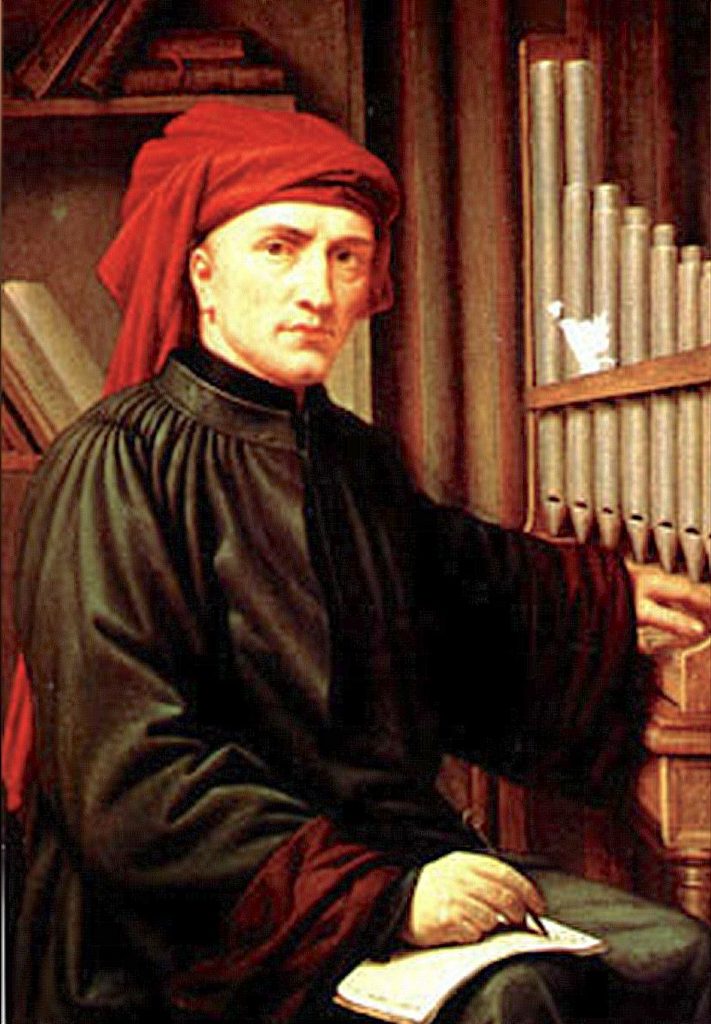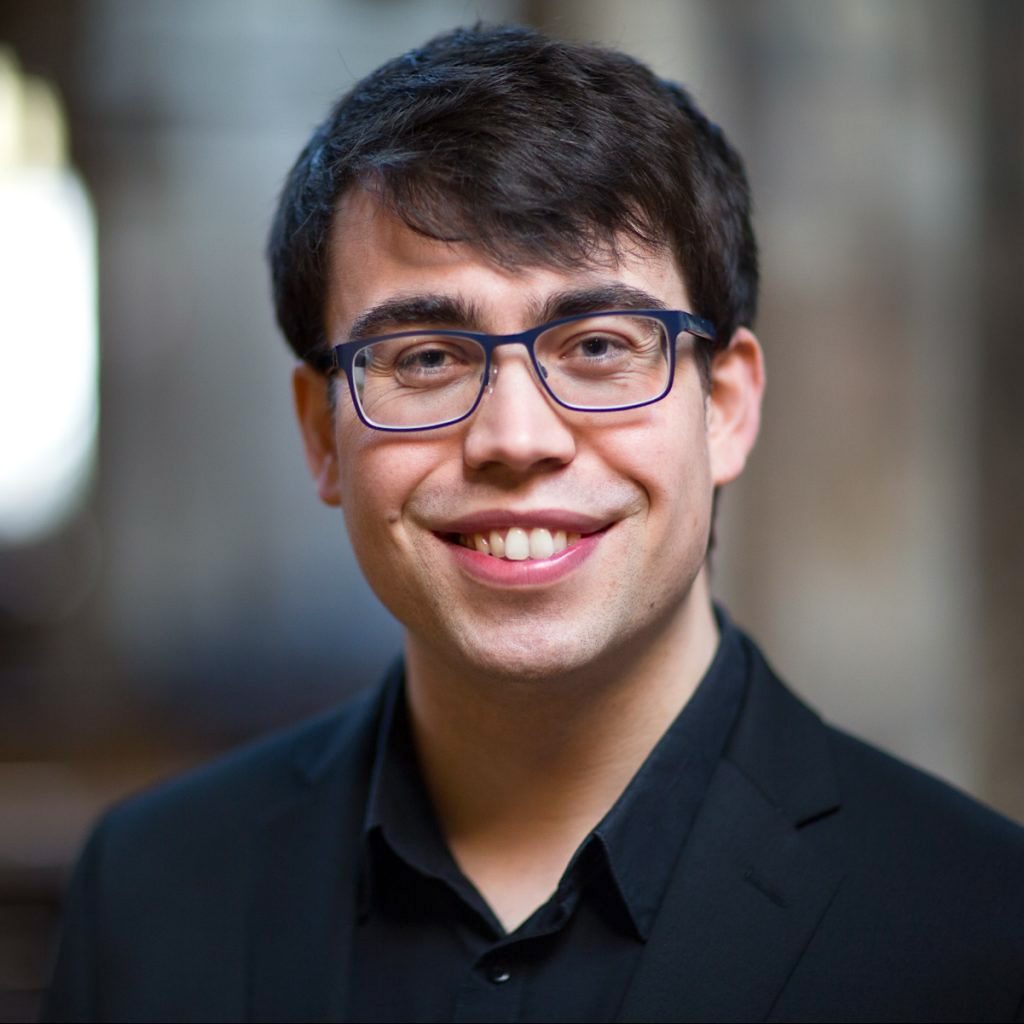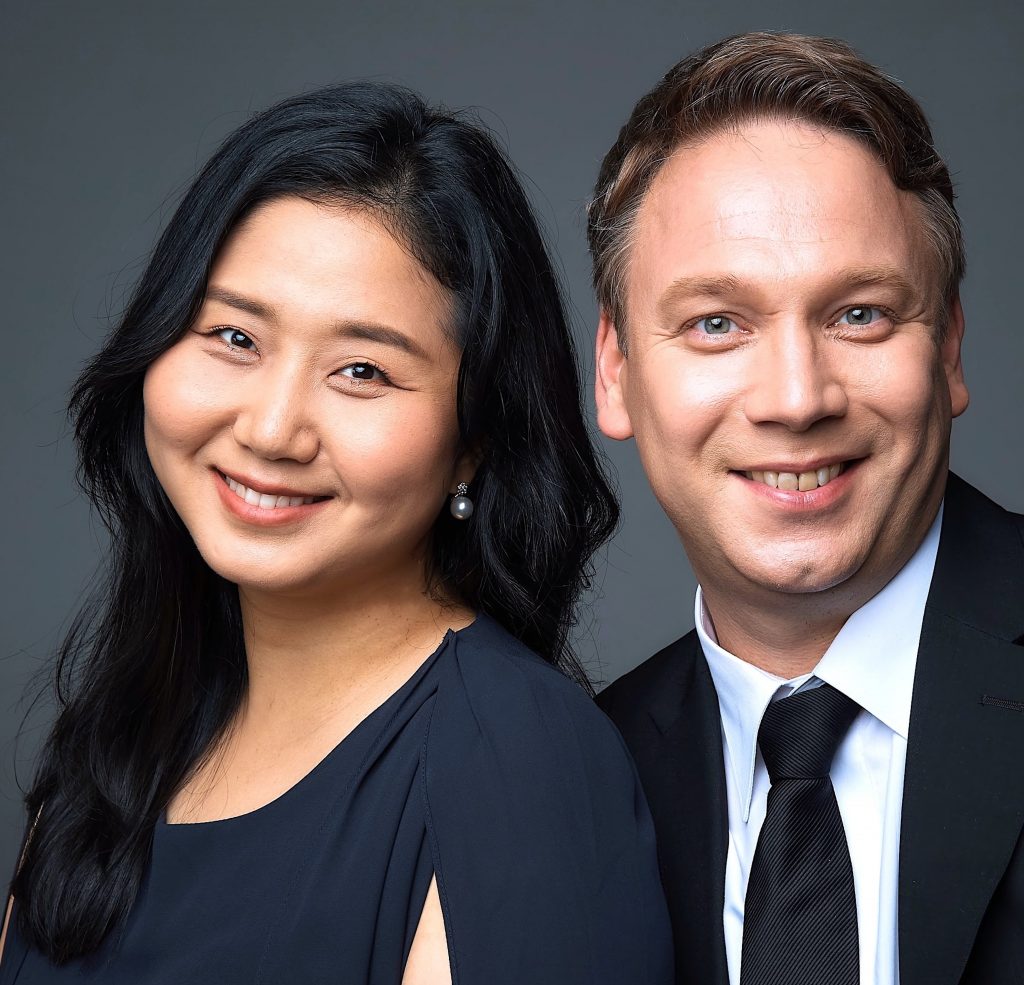Even if you don’t know the name Josquin des Prez (ca. 1450-1521), you will soon have a chance to learn more about the composer who is recognized as the foremost master of the High Renaissance. And if you do know his music, you are about to hear it performed about as gorgeously as you will ever hear it.
On February 21st at Village Presbyterian Church, the internationally acclaimed British ensemble The Gesualdo Six brings a program to Kansas City it calls Josquin’s Legacy, crafted in 2021 to commemorate the 500th anniversary of the composer’s death.
We can rarely grasp an artist in a vacuum, and therefore this program examines Josquin by looking at the music he knew, music he learned from, and composers he influenced. This formula is right in line with that of Friends Artistic Directors Hyeyeon Park and Dmitri Atapine, whose approach is all about interconnections — finding subtle relationships among composers, musical works, eras.
“We were very happy with what this group is trying to do when we looked at this presentation,” Dmitri said. “Not just to concentrate on one composer — who is of course a giant of music — but also to trace his influences, his impact on contemporaries, how people around him reacted to his style.”
Josquin lived and worked during a critical juncture in European music, when a group of composers dubbed the Franco-Flemish school spread throughout Europe — placing their stamp on the music of Northern Italy, The Vatican, even Vienna. It was perhaps Europe’s first taste of internationalism in music, and Josquin was at the head of the class.
“The period bears witness to the emergence of composition as an art,” wrote Alex Ross in a brilliant homage in The New Yorker. “Josquin becomes the patron saint of an essentially new profession that is struggling to gain the level of recognition long accorded to painters and poets. Distinct personalities materialize from the historical mist.”
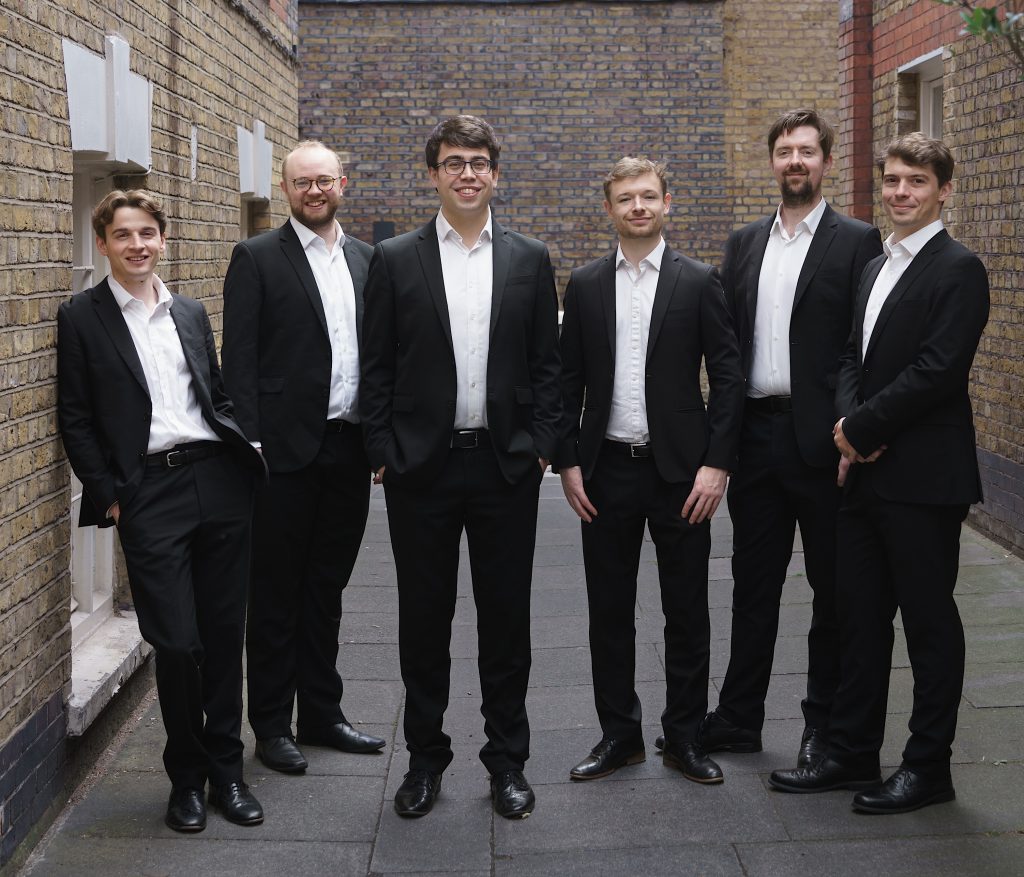
Recently we reached out to Owain Park, distinguished founding director of The Gesualdo Six, for insight into this program and into Josquin’s life and works. Organist, composer, conductor, and singer, Owain attended Cambridge University, studied orchestration with John Rutter, and is a Fellow of the Royal College of Organists. (Also see thegesualdosix.co.uk.)
PH: How would you characterize Josquin’s legacy, for those who might not grasp his larger significance for music?
OP: Josquin’s music radiates architectural ingenuity. It is often quite challenging to sing, as the lines have such structural integrity, but when sounded together they create webs of interlocking voices that give life to the texts he set.
What do we learn by approaching Josquin’s legacy with a program of works by other composers, as opposed to a program solely devoted to one person\?
Putting Josquin’s music in context was important to us, not only to showcase his mastery, but also to emphasis the genealogy of the Franco-Flemish tradition, which links into the Italian school and then permeates the musical fabric of Europe.
Why is it important that Josquin was a “performer-composer,” admired perhaps as much for his voice as for his compositions? How does this affect the way a composer approaches creativity?
Garnering respect among your fellow musicians is a difficult task, but Josquin will have been admired for both his singing and composition and was therefore able to bring his works to life in a more immediate and permanent way.
Why is it often so hard to distinguish one great Renaissance composer from another?
The interaction between composers, both on a career level as performing musicians and as religious/political commentators, meant they swam in similar circles. Aural signifiers and cues would have been shared between musicians and eventually embedded in compositions. A mark of great respect was to copy the opening intervals of another composer’s work!
Many works formerly attributed to Josquin are in doubt. Do you believe that with sufficiently detailed stylistic analysis we can usually attribute questionable works as being by Josquin?
It’s possible — and of course, the manuscripts which survive give us further clues as to who copied them, and where — but for some pieces we may never know their true author or purpose.
Are there some great “Josquin works” of whose authenticity we can never be sure? And if we love the piece, does it matter?
Sometimes the mystery surrounding a composition provokes more thought and interaction than knowing everything.
Do you believe the sort of comprehensive nature of his style, which seems to have absorbed a great range of national and regional aspects, might be a key to its greatness?
Josquin seems to be a figure who embodied a fairly open approach when crafting his music. Singing his music alongside other contemporaneous composers has given us an understanding of his style and we can sometimes predict the direction in which a new piece will go. However, our favorite moments are when he challenges our expectations, and suddenly provides a moment of textural contrast, or harmonic dissonance which highlights a particular moment in the text.
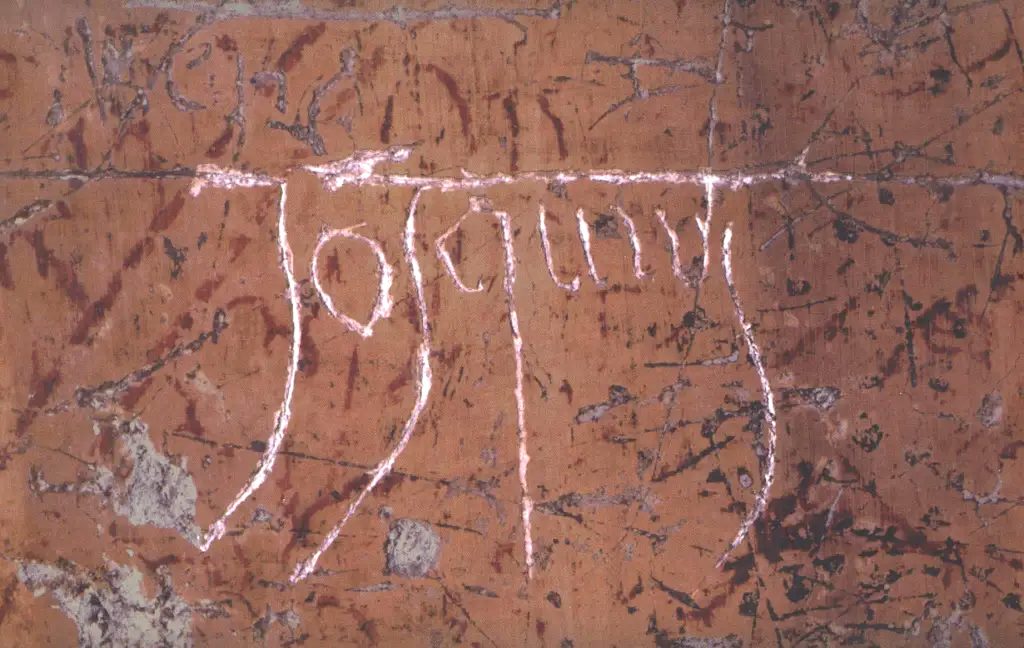
Is it possible to “fall in love” with Josquin’s music the way we do with Bach, Mozart, or Mahler?
With more ensembles programming works by Josquin, I’m sure we will see more people fall in love with his music. When we program his writing, we aim to give a sense of how versatile it is: compare the wondrous simplicity found in Tu solus facis mirabilia with the effervescence of O virgo prudentissima. It’s glorious music, to be enjoyed by as many listeners as possible!
— By Paul Horsley
Friends of Chamber Music presents The Gesualdo Six, on February 21st at Village Presbyterian Church, with music by Josquin, Johannes Ockeghem, Pierre de la Rue, Costanzo Festa, and others. Call 816-766-1096 or go to chambermusic.org.
To reach Paul Horsley, performing arts editor, send an email to paul@kcindependent.com or find him on Facebook (paul.horsley.501) or Twitter/Instagram (@phorsleycritic).
